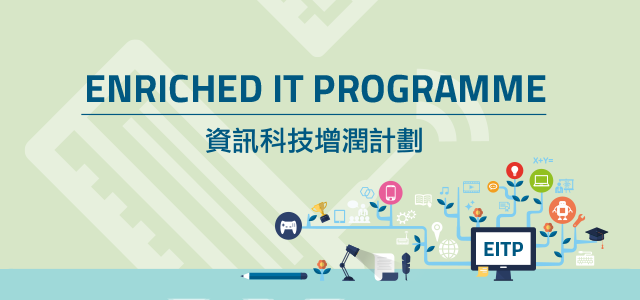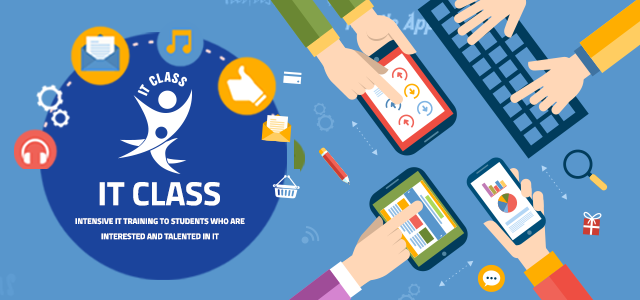GCIO visited the four partner schools of the “Enriched IT Programme in Secondary Schools” that exhibited in the Learning and Teaching Expo 2019. (with photos)
The GCIO, Mr Victor LAM, JP, visited the four partner schools of the “Enriched IT Programme in Secondary Schools” that exhibited in the Learning and Teaching Expo 2019 on 11 December 2019 and gave encouragement to students for their future development in the IT industry.
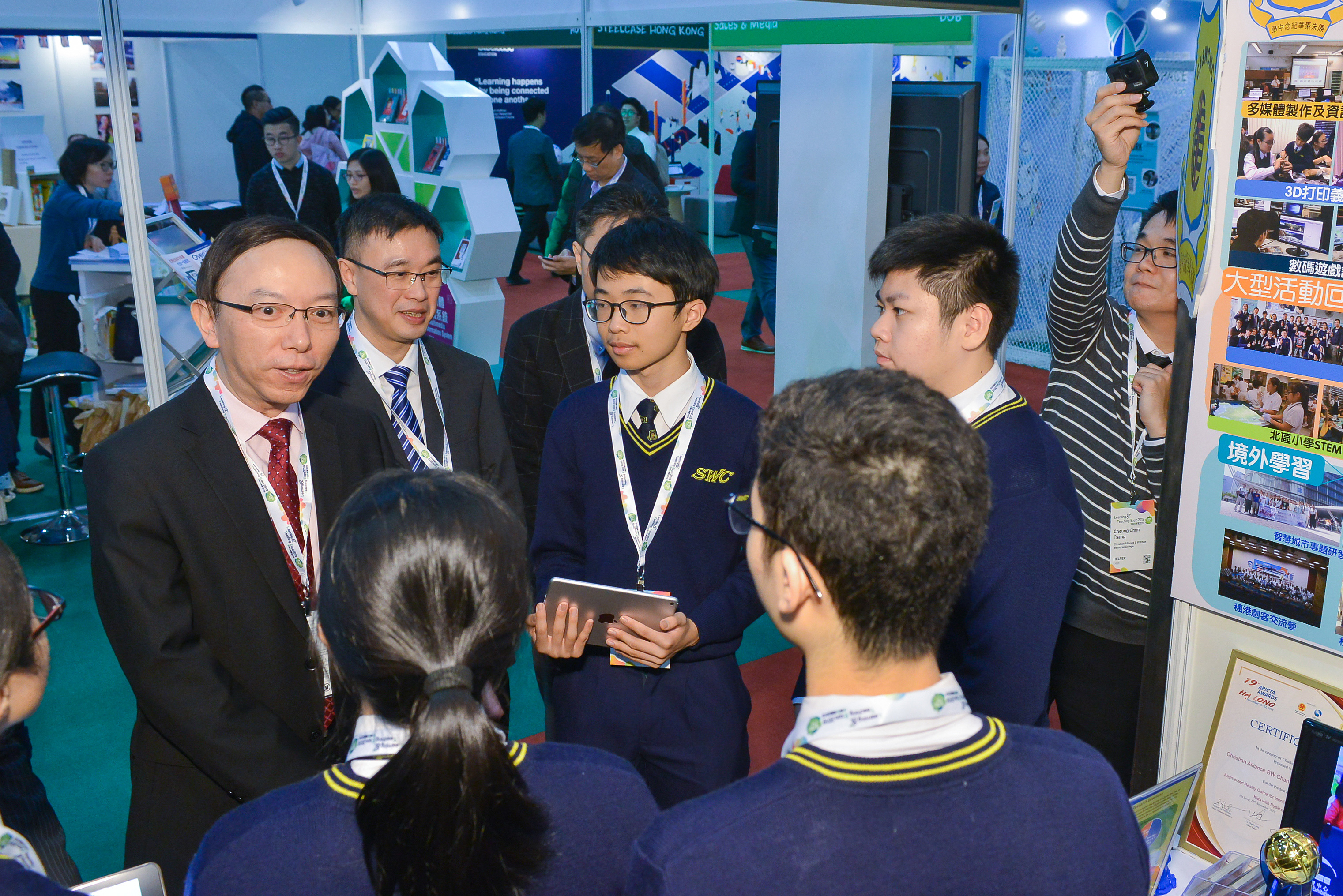

The “A.I.CAMe” is a low-cost portable smart device using artificial intelligence image recognition for on-site situation analysis to let the visually impaired have a better understanding of their surroundings and make it easier for them to get around on their own. The unit production cost of the device is as low as HK$350. The device can be installed directly on the crutches of the visually impaired and no additional hardware is required. It is expected that this practical and low-cost device can help solve the problem of travel inconvenience encountered by the visually impaired, and serve as an ideal tool for them to explore our city independently. This smart device won the Gold Award in the Hong Kong ICT Awards 2019 – Student Innovation Award (Secondary School) and the Merit in the Asia Pacific ICT Alliance Awards 2019 – Senior Students Project.
This “Augmented Reality Game for Identifying Early-age School Kids with Dyslexia” device aims to address the problem where students with dyslexia in Hong Kong often miss the golden time for treatment due to delayed diagnosis. Tailor-made for K2 to Primary 2 students, the user interface design of AR mobile application will use the minimum amount of text to facilitate early identification of potential dyslexia cases. Apart from using stereoscopic toys which are produced using 3D printing technology and image recognition technology to conduct testing, AR technology will also be adopted to help enhance interactivity and add extra fun. Parents and schools can use the test results as reference to plan as early as possible for the future development of their children and students with the aim of grasping the golden time for treatment and increasing the effectiveness of therapies. This device won the Bronze Award in the Hong Kong ICT Awards 2019 – Student Innovation Award (Secondary School) and the Merit in the Asia Pacific ICT Alliance Awards 2019 – Senior Students Project.
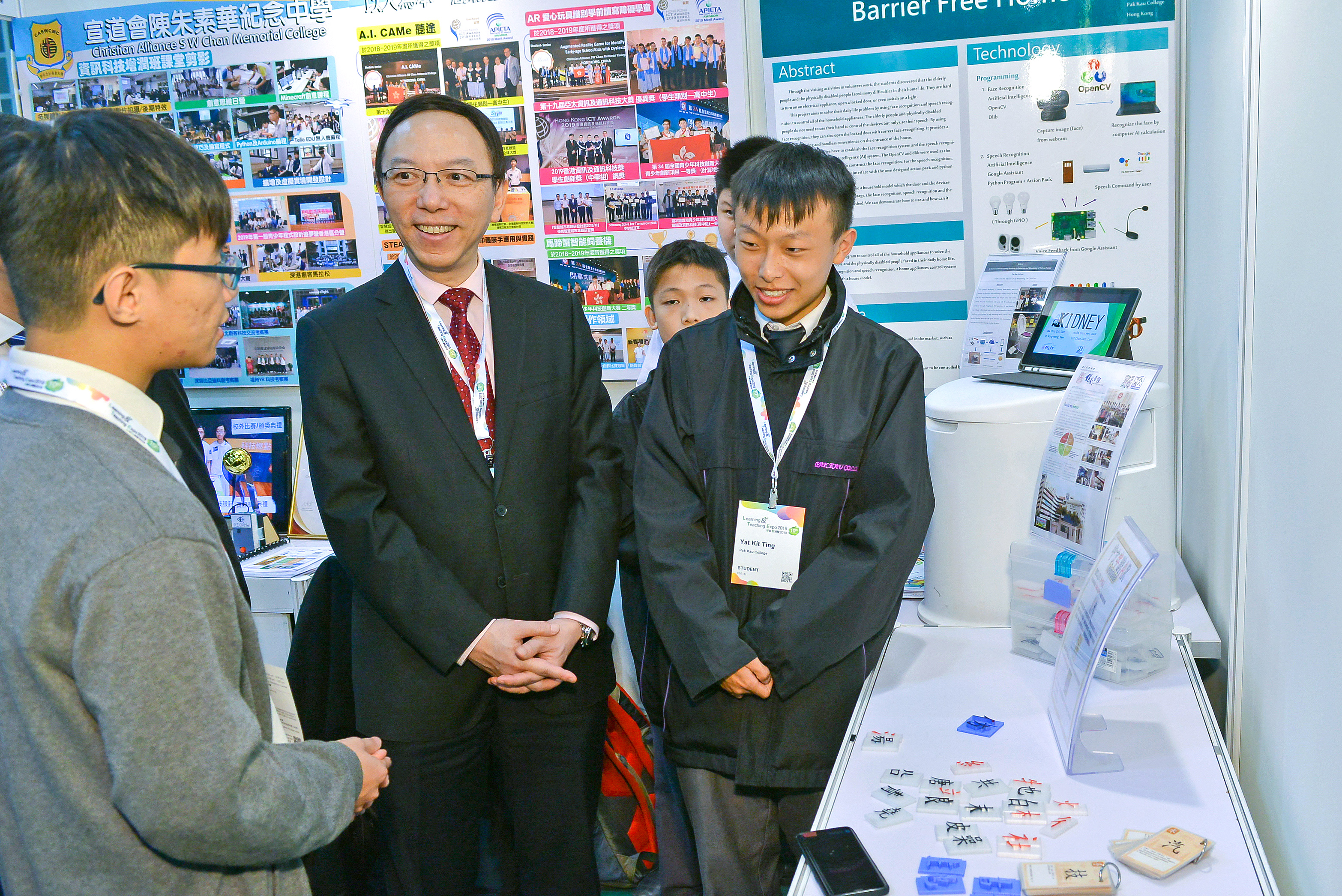

The “Chinese Character Card Game AR” is an AR scrabble game. By splitting Chinese characters into radicals and parts, and utilising 3D-printing technology to produce character block models, the AR game enables SEN students to perform character splitting and combining exercises freely. Through touching character block models, it is easier for them to learn the Chinese strokes. Students can also make use of the mobile app to scan the Chinese character model and automatically search for the corresponding electronic card and display it in AR technology, which facilitates checking for its meaning at any time. This game won the Secondary School Champion in the Samsung Solve for Tomorrow 2018.
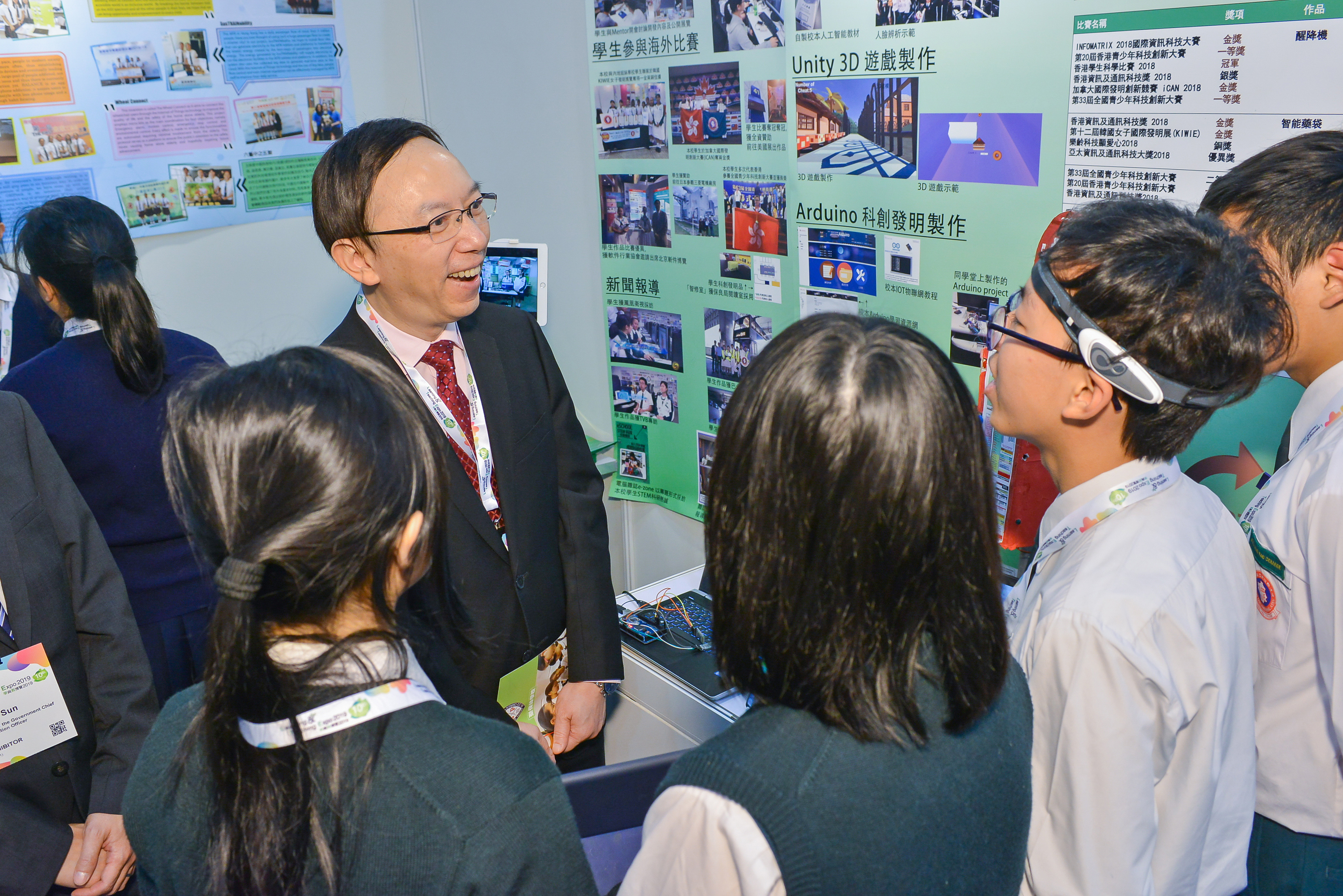
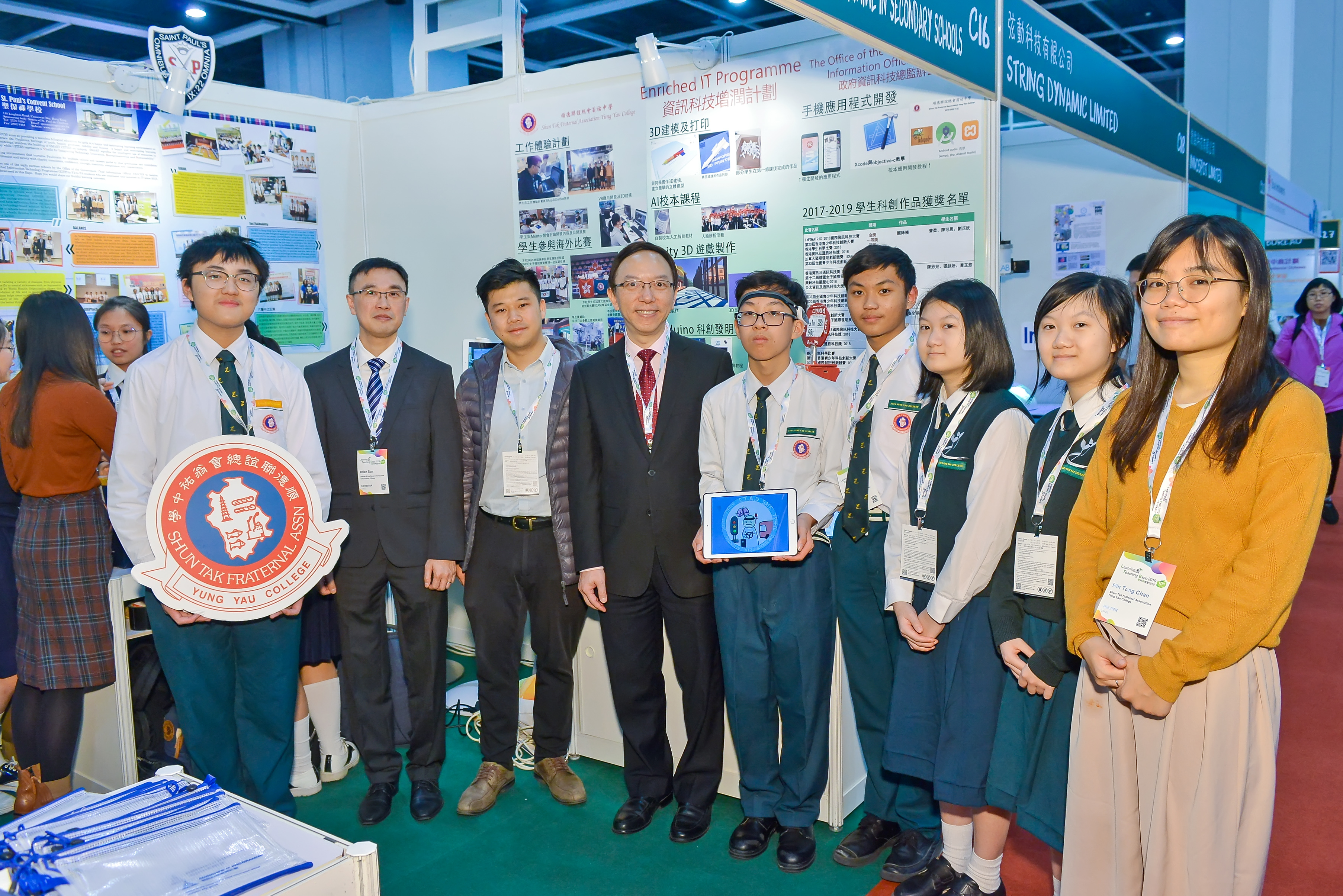
The “S.T.A.D.” system monitors drivers’ mental status, including their concentration, alertness and mood swings, etc. with brainwave headsets. When drivers are distracted or not in good conditions, the system will automatically raise the alarm to alert them. The system adopts a central cloud monitoring system that allows bus companies to monitor drivers’ mental status instantly and provide immediate support. It also generates monthly reports for bus companies to make detailed analysis of manpower deployment by routes so as to reduce driver fatigue, which in turn ensures passenger safety in the long run. This system won the Silver Award in the Greater Bay Area STEM Excellence Award 2019 (Hong Kong).
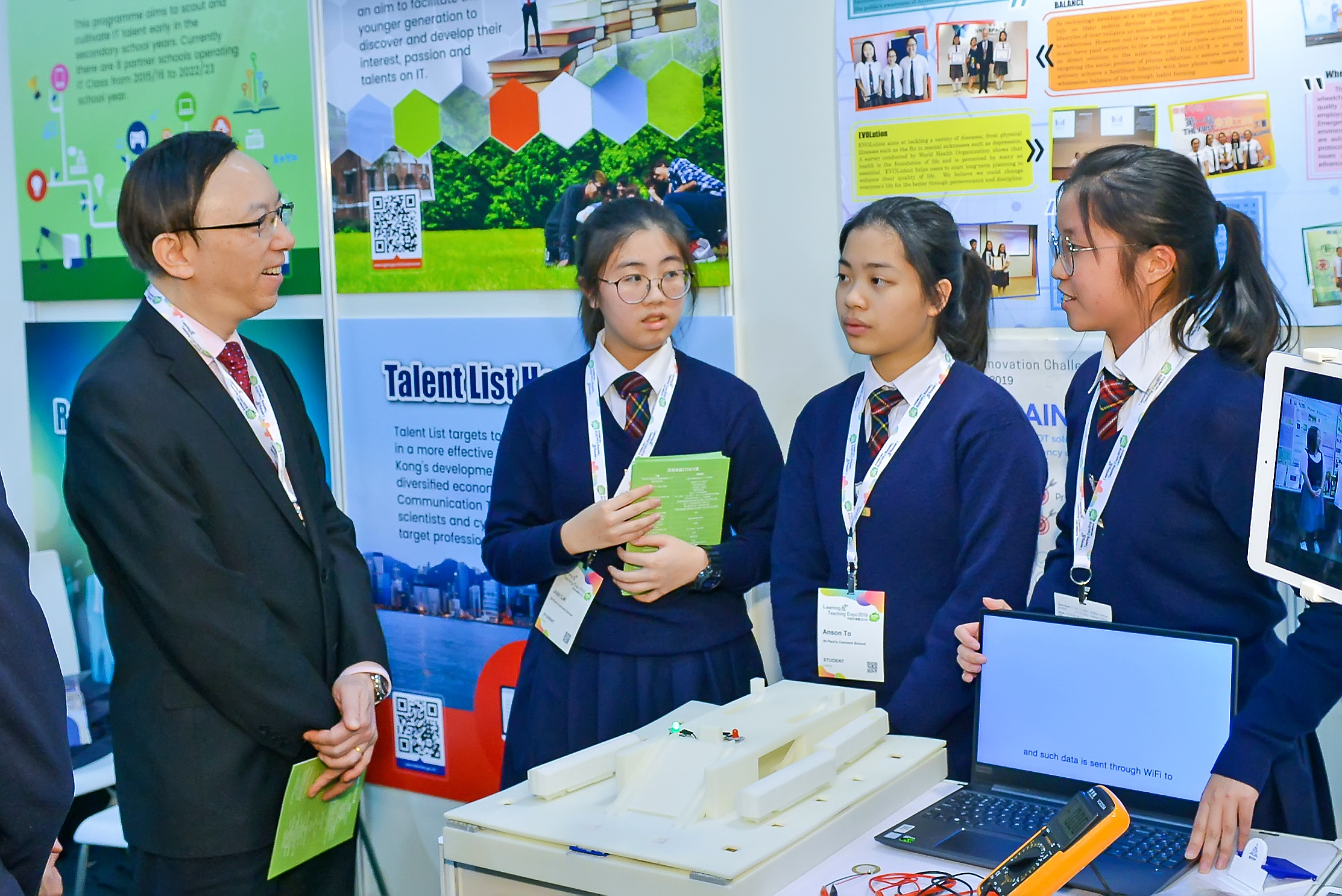

The MTR network delivers more than 5 million passenger trips per day. With the “SusTRAINability” system, floor tiles that can generate electricity by transforming the kinetic energy created when passengers walk on them into electrical energy will be laid in the lobbies and on the platforms of the MTR to supply electricity to electronic devices installed therein, thus achieving sustainability. In addition, the system will collect big data using the Internet of Things technology and, with the aid of cloud real-time data processing, use different escalator light signals to indicate the passenger flow on various platforms, enabling passengers to have a grasp of the latest situation and achieving effective crowd control. By making use of big data to predict passenger flow, the MTRC can also better regulate train frequency and optimise the use of resources. This system won the Outstanding Smart City Project Award (Senior Secondary) of the EDB’s Smart City Project Programme 2018/19.
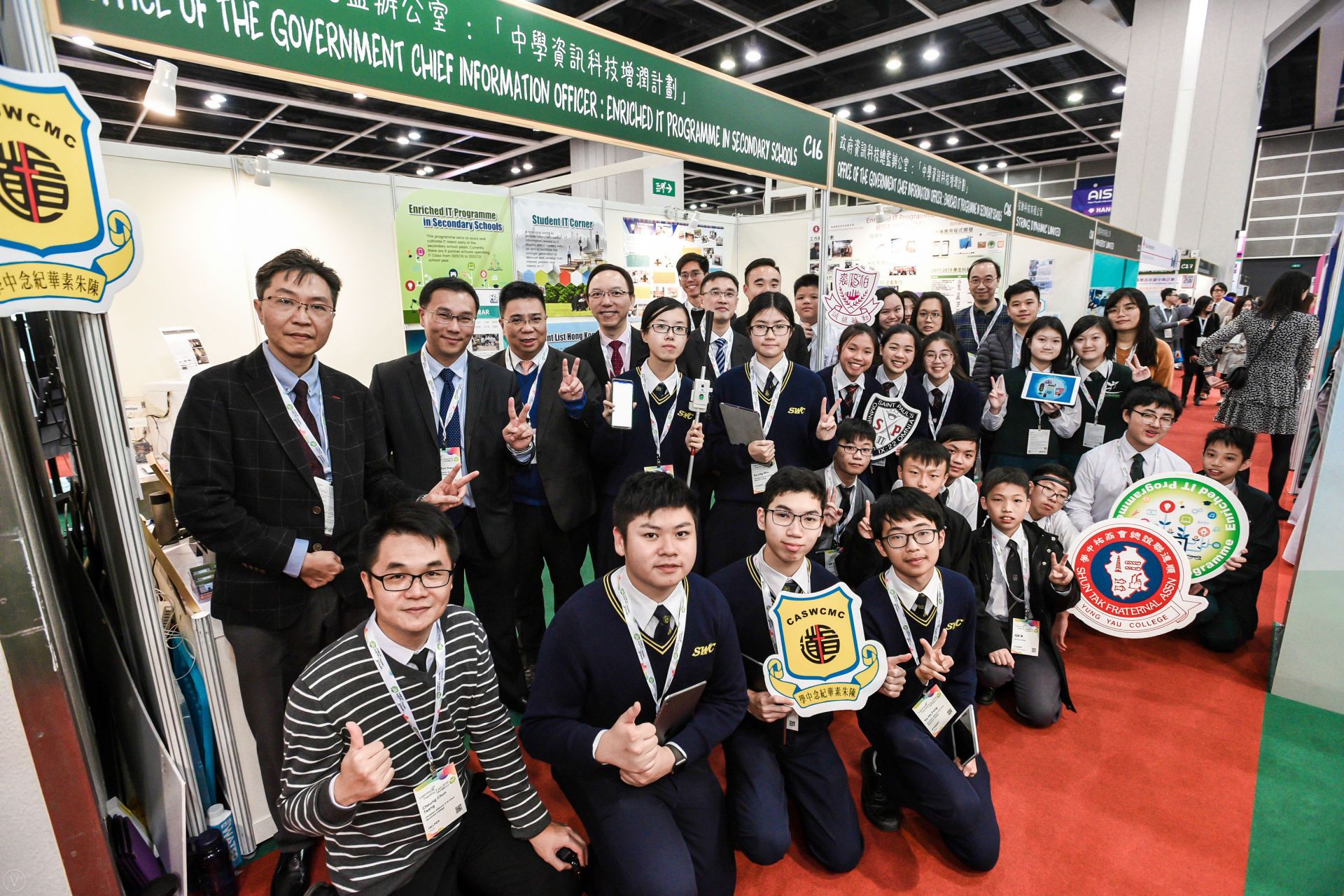 Learning and Teaching Expo is the Asia’s Leading Education Expo and Hong Kong’s annual signature event for educators. The Expo is supported by the education community from Hong Kong, China and increasingly across the Asia-Pacific region. Education suppliers use the Hong Kong show to meet educators at both government and international schools. Learning & Teaching Expo is supporting the Greater Bay Area initiative to provide greater connectivity and communication between the major cities of Guangdong Province and Hong Kong and Macau.
Learning and Teaching Expo is the Asia’s Leading Education Expo and Hong Kong’s annual signature event for educators. The Expo is supported by the education community from Hong Kong, China and increasingly across the Asia-Pacific region. Education suppliers use the Hong Kong show to meet educators at both government and international schools. Learning & Teaching Expo is supporting the Greater Bay Area initiative to provide greater connectivity and communication between the major cities of Guangdong Province and Hong Kong and Macau.








 Learning and Teaching Expo is the Asia’s Leading Education Expo and Hong Kong’s annual signature event for educators. The Expo is supported by the education community from Hong Kong, China and increasingly across the Asia-Pacific region. Education suppliers use the Hong Kong show to meet educators at both government and international schools. Learning & Teaching Expo is supporting the Greater Bay Area initiative to provide greater connectivity and communication between the major cities of Guangdong Province and Hong Kong and Macau.
Learning and Teaching Expo is the Asia’s Leading Education Expo and Hong Kong’s annual signature event for educators. The Expo is supported by the education community from Hong Kong, China and increasingly across the Asia-Pacific region. Education suppliers use the Hong Kong show to meet educators at both government and international schools. Learning & Teaching Expo is supporting the Greater Bay Area initiative to provide greater connectivity and communication between the major cities of Guangdong Province and Hong Kong and Macau.
_banner_1200x275.jpg)



_banner_640x300.jpg)
